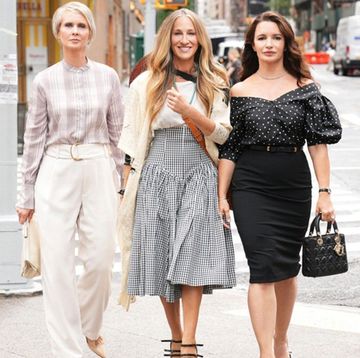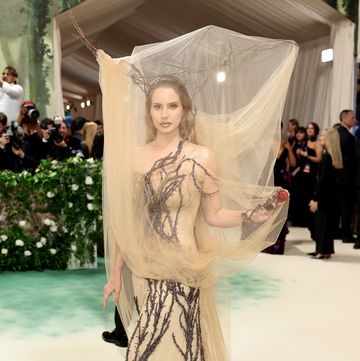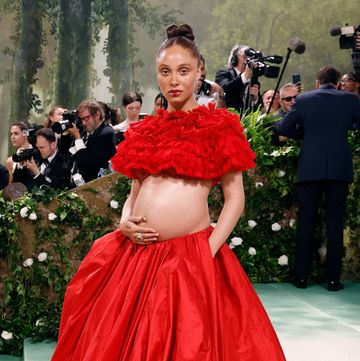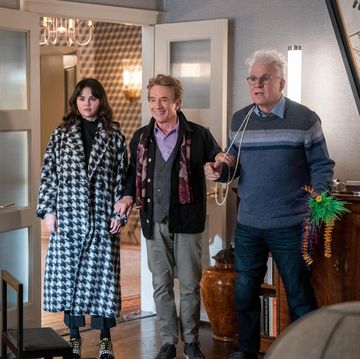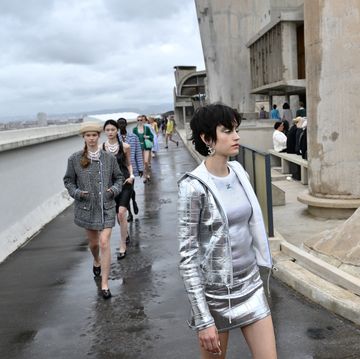‘Wear bright clothes if walking at night.’
‘Phone someone and have a conversation.’
‘Don’t walk too late, stick to main roads.’
This is all advice that Sarah Everard is believed to have taken before she was allegedly abducted and murdered in south London last week.
The 33-year-old had left a friend’s house to walk home at 9pm. According to reports, she called her boyfriend on the way home, CCTV shows her wearing a bright green raincoat and the roads she walked were main roads. I know this because I lived five minutes away from the road she was last seen on until very recently, a few friends still aren’t far from there now. Most of us congregated around that south London area when we moved to London from our coastal hometown.
All the choices Sarah made are ones that we, as women, have drilled into us from a young age by our parents, PHSE school lessons, police officers and more. It’s why my friends and I all message ‘Home’ when we get into bed after seeing each other, something we’ve done since we were teenagers and we still do as we approach 30. It’s why I share my location on WhatsApp with my boyfriend if I’m travelling back somewhere alone. It’s why we walk with our keys in our hands. It’s why we’re told to look confident and like we know where we’re going and why I panic internally but put on a front when I realise I am lost and have to check Google Maps. It’s why when cabin fever and anxiety intensified during a third lockdown, I still didn’t go out for several days during the week, because I finished work at 5pm and it was dark. Unless it was with my partner. Meanwhile, he went for a run whenever, unperturbed by the sun setting.
It’s why this case has hit so close to home for so many of us, as head of the Metropolitan Police Cressida Dick acknowledged in a statement to the media on Wednesday evening when she confirmed the devastating news we were bracing ourselves for, that human remains have been found in a Kent woodland in the search for Sarah (detectives have not yet confirmed an identity).
‘I know Londoners will want to know that it is thankfully incredibly rare for a woman to be abducted from our streets,’ she said. ‘But I completely understand that despite this, women in London and the wider public - particularly those in the area where Sarah went missing - will be worried and may well be feeling scared.’
We are scared, we’ve always been scared and cases like this only validate our long-held fears. Sarah was missing for a week before a man was arrested on suspicion of her murder and abduction and a ‘separate allegation’ of indecent exposure. This man is a serving member of the Metropolitan Police, his job is to be an armed guard at Westminster, Downing Street and other UK institutions. He was in a position where he was supposed to protect people.
Reports of a separate allegation of indecent exposure are haunting too. Another reason we do these mediating risk-averse behaviours are because of our experiences. Abduction may be rare but other forms of assault and abuse are anything but. We’ve all experienced sexual harassment, if not assault. A UN women survey, published yesterday, revealed that virtually all women in the UK (97%) said they had been sexually harassed. Virtually all women. Ask any woman in your life and they’ll be able to recall a handful of examples. From sexually-charged comments made towards me by previous colleagues to being groped on the street by a man who walked past me on a university night out in Camden to a man masturbating across from me and my friends on a post A-Level trip to Barcelona. The gut-wrenching knowledge our experiences have shown us is that many men still see us as objects. In my job I rolled my eyes at colleagues – not wanting to cause a scene and anger them; in Camden I shakily grabbed my friend’s hand, told her and we picked up our pace; in Barcelona we grabbed our things and ran away. We do everything in our power to make sure the situation doesn’t escalate.
But we shouldn’t have to. Sarah did everything she was told to. She was still allegedly murdered. Doesn’t this finally prove that we, as women, are not the problem? It’s the men killing, attacking and raping us who are. Victim blaming is rampant in our society, from the constant questioning of domestic abuse survivors about why they ‘didn’t leave’, to the rape survivors who have their account called into question because they were drunk, had a sexual history or wore a short dress. As Sarah was missing, and search teams were combing nearby Clapham Common for any trace of her, we reportedly heard this message once again. Women in the local area who had police officers knock on their doors regarding Sarah’s disappearance told the press they’d been warned to be extra vigilant.
The response of my friends and colleagues to the case has been one of heartbreak, with several noting its been a trauma trigger. It’s also been one of anger at a two-fold realisation: questioning if there is actually anything we can do to protect ourselves, while harbouring the resentment that we shouldn’t have to do anything in the first place. While predators and men who threaten our safety exist, are the measures we take to protect ourself purposeless?
The unimaginable horror that Sarah’s friends, parents, boyfriend, loved ones must be feeling right now is overwhelming and feels crushing. It weighs heavy on us all. I can’t stop thinking about them and her and I know I’m not alone. She’s been described as ‘beautiful, thoughtful and incredibly kind’. She was 33, a marketing executive, an alumni of Durham University and hails from York.
How are we supposed to believe in gender equality when the threat of male violence persists? How are women supposed to make progress with our equal economic, legal, social and political rights when we still can’t go out after dark without a looming fear in our minds? When are lawmakers, police officers and those who trend #NotAllMen on Twitter going to realise that the policing of women’s actions and constant defence of ‘not all men’ is as ineffective as it is insulting?
We’re going to shout Sarah’s name until this is realised.
Sign up to our newsletter to get more articles delivered straight to your inbox.
In need of more inspiration and thoughtful journalism? Subscribe to ELLE's print magazine today! SUBSCRIBE HERE





